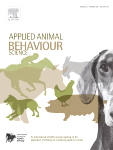Document type: written answer published in the Journal Officiel of the Fench Senate
Authors: question: Sébastien Pla (Aude - SER). Answer: French Ministry of Agriculture and Food Sovereignty
Question: Mr. Sébastien Pla would like to draw the attention of the Minister of Agriculture and Food Sovereignty to question no. 27548 of 07/04/2022, in which he questioned the demands made by the French Animal Protection Society (SPA) concerning the creation of an animal rights advocate, an independent authority tasked with centralizing, monitoring and increasing actions to ensure respect for animal welfare, and whose role could be assimilated to that of an ombudsman to defend animal rights who would respond to the public.
He suggests that the minister consider this possibility, which would have the advantage of enabling national government to play a leading role in animal protection and, to this end, to have recourse to an independent authority that would take stock of the situation and make proposals for legislative and regulatory improvements, as well as having the power to call on the courts and government in any matter relating to its remit.
He also suggests the simplification of reporting procedures by centralizing them under an Animal Rights Ombudsman. This would have the advantage of providing coordinated action to combat animal abuse, given that at present, professional organisations such as the police, gendarmeries, the prefecture, and the veterinary services working under the directorates for social cohesion and population protection in the départements, along with any private individuals owning more than 9 animals, and animal protection associations such as the SPA, may be those first alerted to abuse. However, the latter do not always have officers authorized to intervene in the field and, depending on the association's area of expertise, some are not always in a position to respond, sometimes specialising in particular contexts of abuse, such as professional establishments (e.g. kennels), or in a particular animal species.
He therefore asks whether the government intends to act on this proposal, which would have the advantage of preventing and punishing acts of animal abuse, given that animals are now recognized as sentient beings, and that any act of abuse is punishable by a fine or imprisonment, as stipulated in article R215-4 of the Rural Code, which provides a scale of penalties for owners who neglect their animals.
Answer: The fight against animal abuse is a priority for the Government, which has undertaken numerous actions to achieve this in recent years. Law no. 2021-1539 of November 30, 2021, to combat animal abuse and strengthen the bond between animals and humans, has already made it possible to impose tougher penalties in cases of animal abuse. Article 521-1 of the Penal Code has been amended. In addition, a national force to combat animal abuse is currently being set up by the Ministry of the Interior and Overseas France. Comprising 15 specialized officers (gendarmes, police officers and a veterinarian), this division will handle interdepartmental, national and international cases, such as pet trafficking, working in collaboration with the national veterinary and phytosanitary investigation brigade of the Ministry of Agriculture and Food Sovereignty. Meanwhile, 4,000 gendarmes are currently undergoing training as part of a national partnership with the Society for the Protection of Animals, and animal welfare advisors are being appointed in all gendarmeries and police stations. These advisors will also liaise with the Departmental directorates for population protection, the French Office for Biodiversity and animal protection associations. With regard more specifically to the fight against pet abuse, the Ministry of Agriculture and Food Sovereignty has undertaken a number of initiatives. In particular, the first Observatory for the Protection of Domestic Carnivores (OCAD) was set up in 2021, bringing together on its steering committee all those involved in the pet industry, including associations, professionals, scientists and representatives of national and local authorities. OCAD's mission is to issue recommendations on public policy, and it has identified the fight against abandonment as a priority area for action. The initial work consists of quantifying and identifying the different types of abandonment, in order to provide a basis on which to determine the actions to be taken. In addition, the French Ministry of Agriculture and Food Sovereignty has piloted a broader initiative to improve conditions for companion animals, as part of its Recovery Plan. A total of 35 MILLION EUROS has been earmarked to combat animal abandonment and improve the conditions in which animals are received. 29 million have been allocated directly to animal protection associations that take in abandoned animals, to enable them to expand or renovate their shelters, or to conduct sterilization campaigns for stray cats and dogs, in partnership with local councils. The care of animals belonging to the destitute or homeless is also funded to encourage veterinary care for these animals and, more specifically, to encourage sterilization, the first step in preventing the abandonment of unwanted young animals. In addition, to optimize the work of animal protection associations, grants are being awarded to national associations entrusted by the Ministry with the task of training and raising the awareness of local associations.






